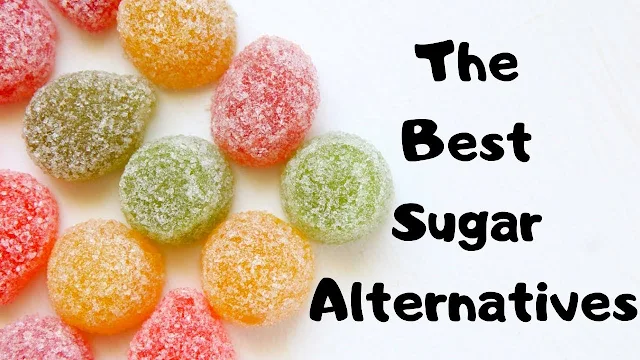I think everyone can agree by now that refined white sugar isn't the best option. But when we discuss sugar alternatives, that's when the real misunderstanding arises. Monk fruit sugar, erythritol, xylitol, stevia—the list is extensive and never-ending! Let me explain it to you in the most straightforward manner I can.
First, let’s talk science. Sugar of any kind, whether it’s coming from white table sugar or a banana, is processed the exact same way in your body. The question then is “why care about using sugar substitutes at all?”
For two reasons:
- Impact on blood sugar levels
- Nutritional value
1. Impact on blood sugar levels:
If you eat a lot of sugar in your diet (from any source), your blood sugar level will rise, which encourages greater fat storage, greater appetite and cravings, mood swings and irritability, fatigue, proliferation of bad bacteria in the gut and a host of other problems, such as insulin resistance and hormonal problems.
That being said, the key to keeping your blood sugar levels in check is to a) eat sugar sparingly; b) eat it alongside some fiber, good fat or protein to slow down the release of sugar into your bloodstream (this is why it is best to opt for fruit); and c) choose sources of sugar that are lower on the Glycemic Index. This indicates how much a particular food raises blood sugar (glucose) after consumption.
Below is a list of common sugar substitutes ranked by their Glycemic Index (the higher the greater the blood sugar spike). This is by no means comprehensive, as sugar hides under many names, it is simply to give an overview of the most common forms.
Dextrose 100
Maltodextrin 90
Table Sugar 65
Brown Sugar 64
Molasses 60
Unrefined Cane Sugar/Juice 55
Raw Honey 55
Maple Syrup 54
Coconut Palm Sugar 35
Brown Rice Syrup 25
Agave* 15
Xylitol** 12
Sorbitol** 4
Yacon Syrup 1
Erythritol** 1
Monk Fruit 0
Stevia 0
*Ensure that this is organic, raw, premium blue agave nectar. Most commercial agave has been diluted with high fructose corn syrup.
**These are just some of the most common sugar alcohols. This group typically ends in “ol” so it is easy to identify. While they have a low GI, they are known to cause bloating and cramps, especially for those who are sensitive or consume it in excess.
Furthermore, the following substitutes are a no-no. Despite them having a low GI, research has shown that they are damaging to our health. In the spirit of keeping this article short and sweet, I will not delve into the controversy behind each one, but there are plenty of reasons companies are now banning or removing these from their ingredient lists entirely!
- Aspartame
- Sucralose (Splenda)
- High Fructose Corn Syrup
2. Nutritional Value
If you’re going to consume a sweetener, might as well make it the most nutritious type possible. The reason I stay away from table sugar is because it is completely devoid of nutrients, especially in comparison to some of its more nutritious substitutes.
For example, 2 tsp. of unsulphured blackstrap molasses fulfill the following daily mineral requirements: calcium (11%DV), iron (13.28%DV), copper (14%DV), manganese (18%DV), potassium (9.73%DV), magnesium (7.35%DV). Not bad at all!
The Bottom Line
Stay away from pure white sugar and any heavily processed or artificial sweeteners. Stick to minimally processed natural sweeteners that are high in nutrients, and then still use them sparingly. I personally enjoy eating a modest amount of fruit every day and use sweeteners only when I’m making dessert, baking or making a salad dressing. My favorites are raw honey, maple syrup, coconut sugar and when it comes to baking I aim to use whole foods like bananas, applesauce, sweet potatoes and dates where I can!
